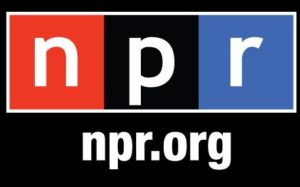I hate disagreeing with one of the great editorialists of our time, but I feel the need to make a point or two about a news medium that is about to expand its presence in the Texas Panhandle.
Paul Greenberg, a winner of the Pulitzer Prize and a man I consider to be a friend, has referred to National Public Radio as “National Propaganda Radio.”
Ouch, man!
Greenberg is a noted conservative columnist who works these days for the (Little Rock) Arkansas Democrat-Gazette. So, his view of NPR perhaps is tainted a bit by his own political leaning.
The Panhandle version of NPR, High Plains Public Radio headquartered in Garden City, Kan., is set to launch an expanded news/information service that will be located at 94.9 FM on the radio dial. It will broadcast news 24/7. HPPR is having a ceremony on Monday at its downtown Amarillo office to mark the occasion.
This is a big deal on a number of levels.
Understand that the Texas Panhandle is as right wing in its outlook as any region in the country. It once was known to be fertile ground for isolationist groups such as the John Birch Society, the folks who disdain the United Nations, fearing it’s a cover for a worldwide takeover of every nation’s sovereignty.
But HPPR sought contributions from listeners in the region to launch the all-news system. It received them.
Public radio long has been the bogeyman of right wingers, who insist that it’s nothing but a liberal mouthpiece, that is spouts lies, tilts the news toward the left, that it serves as a propaganda organ for squishy liberal thinkers.
As Col. Sherman T. Potter would say: buffalo bagels!
A friend and former colleague of mine who used to work at HPPR in Amarillo once told me that NPR’s gurus made sure that on-air news presenters and reporters avoided using the term “reform” to describe the Affordable Care Act. “Reform,” my friend said, implies an improvement over existing policy and NPR wanted to be sure to avoid the appearance of bias in its reporting of this highly controversial public policy. NPR’s preferred term was “overhaul,” he said. Fair enough.
I learned long ago when I started my career in print journalism that bias — without exception — is a product of one’s own world view. If you disagree with someone else’s view, then that person is “biased.” One rarely sees or hears of people acknowledging their own bias. I received a good bit of that sort of criticism during nearly four decades in journalism, most of which I spent writing opinions for newspapers.
Do I have my own bias? Sure I do. Do I gravitate toward certain news media over others because I perceive some media taint their news with “bias”? Yes again.
Public radio, though, is a different animal altogether. Its presentation of news is as fair as fair gets. It even has fans and followers who often don’t want to acknowledge it.
I recall a conversation I had with a key aide to U.S. Rep. Mac Thornberry, the Clarendon Republican who has represented the 13th Congressional District since 1995. This source — who also happens to be a friend — actually whispered to me over the phone that many on Thornberry’s staff “listen to NPR.”
Why are you whispering? I asked. My friend said, “Oh, I don’t know. It’s just what we do around here.”
Fear not. NPR isn’t out to poison anyone’s mind. It’s here only to provide news we can use … in whatever way we choose.
And it damn sure isn’t propaganda.
